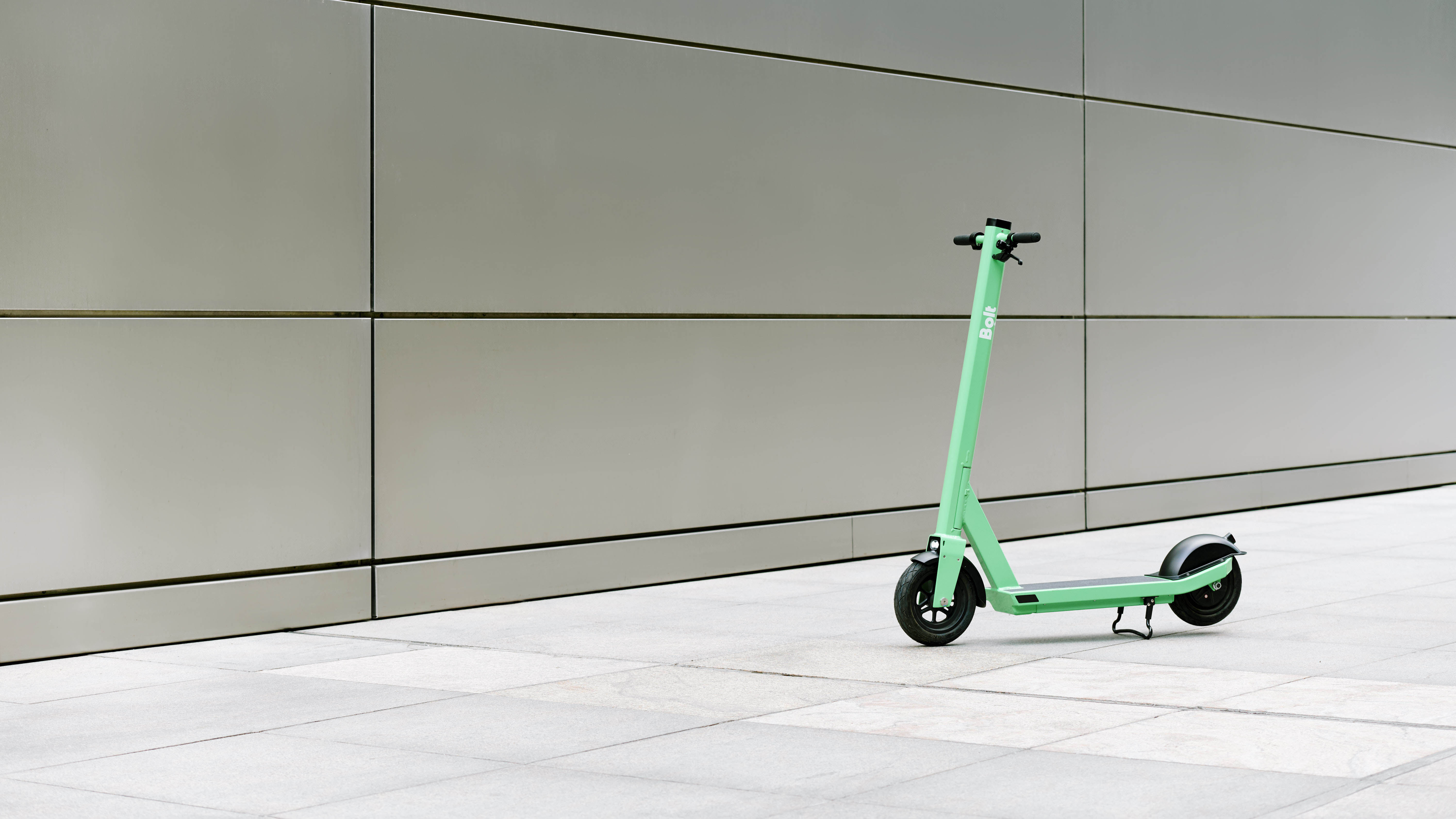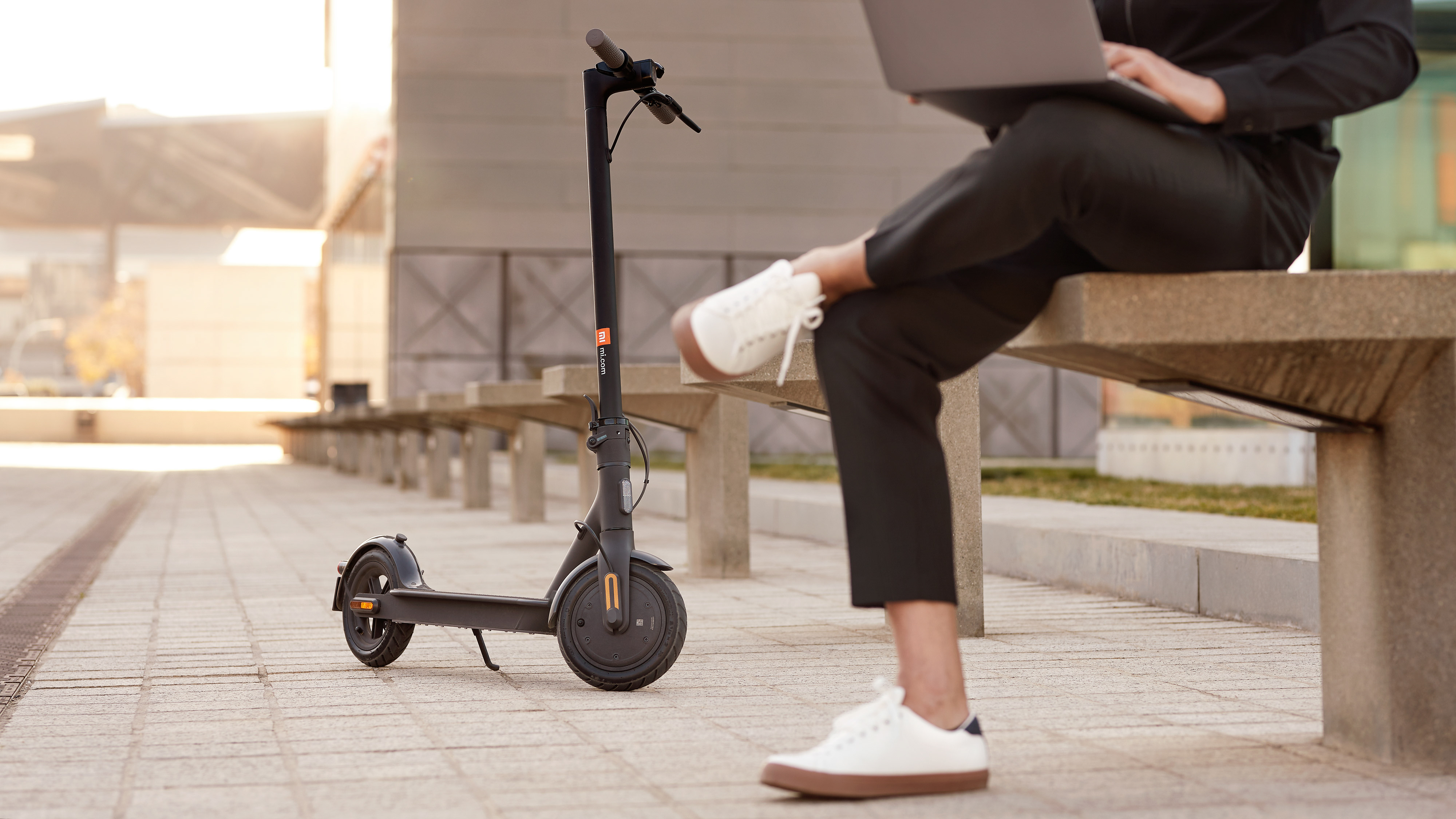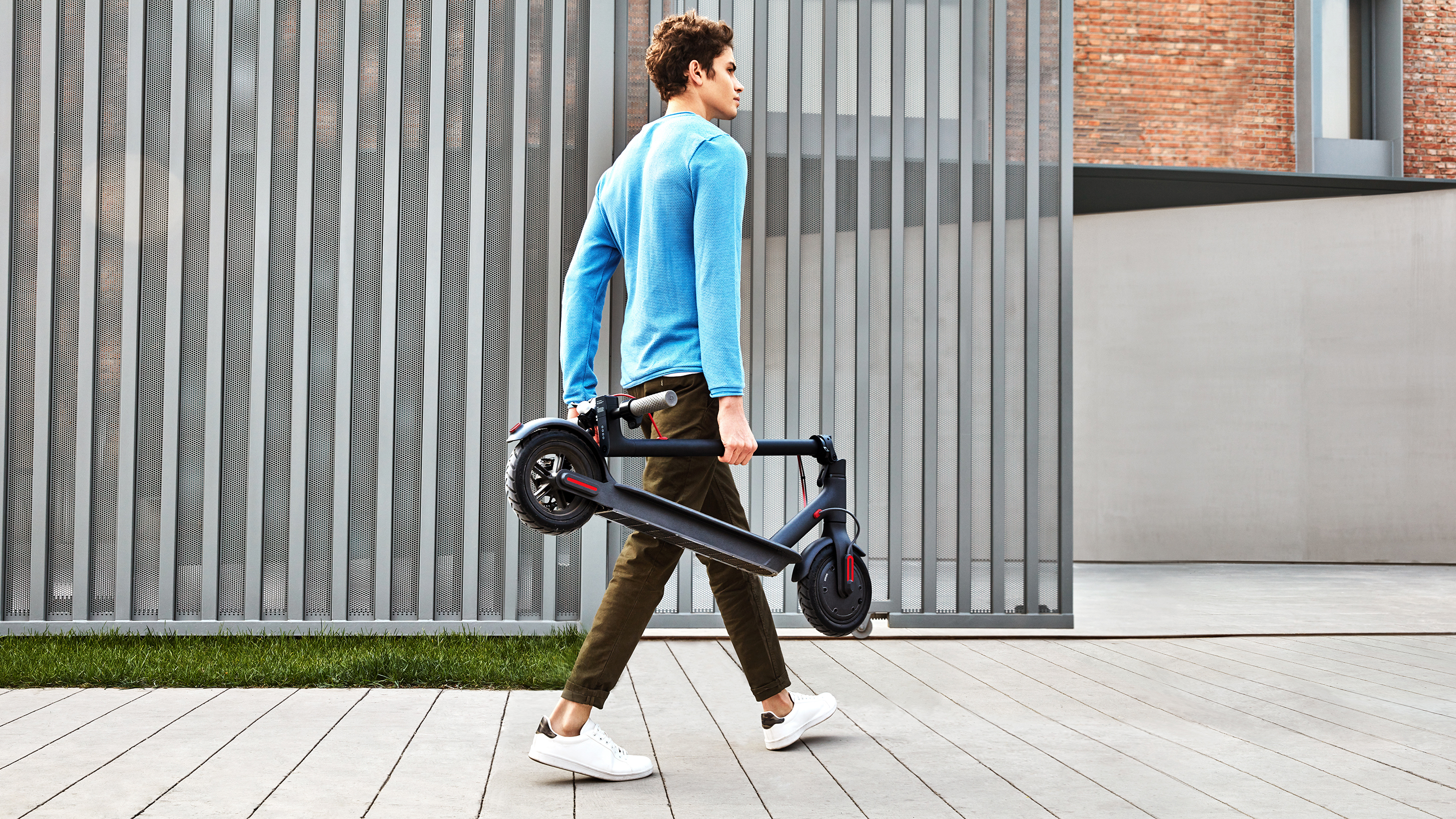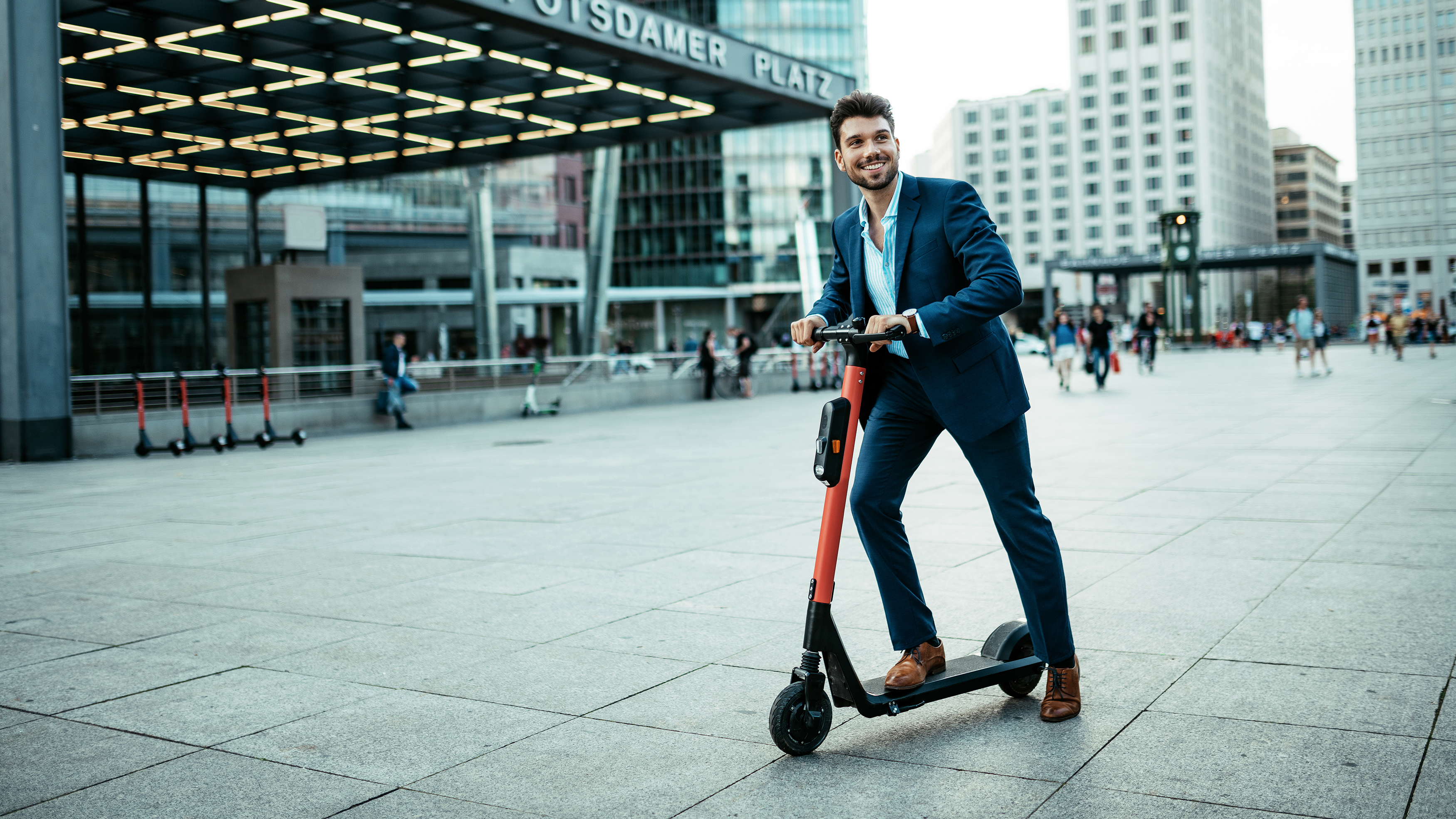Are electric scooters legal in the UK? Everything you need to know
Here is what you can and can’t do with e-scooters in the UK today


You will no doubt have seen a huge increase in electric scooters on Britain’s roads this year. During the coronavirus lockdown their use in major cities surged as people ditched public transport in favour of scooters built by Ninebot Segway, Pure Air, Xiaomi and others.
Priced from around £400 to over £1,000, electric scooters are available in a range of sizes and colours, with lights, reflector strips, and even digital displays to show your speed and riding mode.
Some models have Bluetooth for connecting to your smartphone for software updates, and most use KERS (kinetic energy recovery system) to harvest energy while braking and feed it back into the battery. A bit like a Formula One car.
According to LV Insurance, one-in-five UK adults are willing to try an e-scooter, despite 93% having never used one before. The company also found that 28% of 18 to 34-year-olds will be looking for an alternative form of transport when they return to the office after lockdown.
What are the rules today?
Electric scooters are heralded in many quarters as the solution to our public transport problems. They offer a socially-distant, fresh-air alternative to cramming into buses and trains, while running on electricity instead of internal combustion.
But there’s a problem; technically these electric scooters, which can travel at over 15mph, are not legal to use on the UK’s roads or the pavements. This is because they are considered a Personal Light Electric Vehicle, and fall into the same century-old legal framework as motor vehicles, requiring tax, licencing, an MOT and type approval.
In other words, unless you ride around exclusively on private land, they are illegal and riders can be handed a £300 and/or six points on their driving licence, if they have one.
Get all the latest news, reviews, deals and buying guides on gorgeous tech, home and active products from the T3 experts
As it stands, UK regulation would require e-scooter riders to comply with the motorcycle legal framework. This would mean compulsory helmet wearing (something cyclists don’t have) and the need for a licence and insurance. They are, for now at least, legally different to electrically-assisted bicycles.
But there is light at the end of the tunnel. Starting this summer, the government has allowed local councils to run e-scooter rental trials, where members of the public can pay to borrow a scooter. This still means privately-owned scooters are forbidden on public roads and pavements, but it is progress nonetheless.

How might the rules change?
Given the recent surge in e-scooter demand, the British government is looking to amend its legal framework. To decide what this framework will look like, e-scooter rental trials will take place for 12 months.
Under the proposed changes, an e-scooter is a vehicle with an electric motor (and no other form of propulsion), is designed to carry one standing person with no seat, and has a maximum speed of 12.5mph, as is the rule in France and Germany. However, the UK government is seeking views on whether a limit of 15.5mph would be more appropriate.
The government is also considering a rule that limits e-scooter power output to 350 Watts.
The new rules will also define an e-scooter as a vehicle with two wheels (one at the front, one at the back; hoverboards need not apply), weigh no more than 35kg without a rider, use handlebars for steering, and have hand controls for adjusting speed – controls that must default to zero when not touched.
Scooters used in the rental trials must have insurance, which will be provided by the company or council operating the rental service. Secondly, the new rules state that e-scooter users must have a driving licence “in some form”.
To clarify this, the government states: “We propose that anyone with a full or provisional driving licence can use a trial e-scooter...Users would not be required to complete a mandatory training course [such as the CBT motorcycle course]”.
This means anyone who wants to take part in the e-scooter trial must be at least 16 years old, and have applied for a provisional driving licence. Anyone aged under 16, even in possession of an international driving licence, cannot use an e-scooter in the UK.
Helmets are not compulsory during the UK’s e-scooter trial, but are instead recommended in the same way they are for cyclists.
As for where e-scooters can be used, the government is proposing rules allowing their use on all public roads (apart from motorways and 70mph dual carriageway) and cycle lanes, but not on pavements. Local authorities can make amendments to this by prohibiting the use of e-scooters in areas they consider inappropriate.

What electric scooters are available to hire in the UK?
The legal framework allowing e-scooter trials in the UK took effect on 4 July 2020, with expectations for rental services to kick off in small numbers in August, then grow quickly and run for 12 months.
The first scooters were made available in the Tees Valley Combined Authority area, which includes Darlington, Hartlepool, Middlesbrough, Redcar and Cleveland, and Stockon-on-Tees, in the north-east of the UK.
In total, some 50 local authorities have registered their interest in e-scooter trials with the Department for Transport. These include:
Not all trials will be the same, and a procurement process will see each area decide which scooter manufacturer it wants to order from, and the DfT wants trials to differ in a bid to work out which approach is best.
But, with hopes to quickly scale the Tees Valley trial from 50 to 1,000 scooters, controversy struck.
Growth plans were quickly scaled back after the opening weekend saw reports of teenagers using the scooters on the A19, a 70mph dual carriageway near Middlesbrough. There were also reports of near-misses as scooters were illegally ridden through three shopping centres.
These incidents led to Hartlepool MP Mike Hill telling The Independent: “Using scooters to get people off buses as a way of beating either climate change or coronavirus is farcical. It is fiddling while Rome burns. Whatever the question, e-scooters in Hartlepool are not the answer.”
Assuming the trials overcome these initial setbacks, the DfT wants to capture a range of data, including user gender, ethnicity and disabilities, as well as their journey time, duration, speed and location. Accident data will also be collected in a bid to understand the safety of rented e-scooters. Due to GDPR concerns, the DfT will take responsibility for the collection of this data, instead of relying on each scooter rental operator to do the job for them.

The difficulties of dockless transport
Unlike London’s Santander bicycles (affectionately known as Boris Bikes), e-scooters are not locked into a dock at the end of each journey. Instead, being dockless, they are left whenever the rider wants to finish their journey.
In other countries where rented e-scooter use has already been legalised, such as the US and France, local councils have had problems with abandoned scooters blocking pavements. This is not only a nuisance and an eyesore, but causes trip hazards, especially for pedestrians who are disabled or visually impaired.
Rental companies can address this by monitoring the location of each scooter, then showing riders on a smartphone app where they can and cannot leave the vehicles. Riders who leave their scooter in an inappropriate location could potentially be fined through the app, although this framework is yet to be finalised. Users of Lime bicycles will be familiar with such a system.
After Paris was overrun by 20,000 scooters offered by 12 startups, the city began imposing fines of €135 for riding them on the pavement and €35 for leaving them in doorways or anywhere they might block pedestrians.\
Liked this?
Alistair is a freelance automotive and technology journalist. He has bylines on esteemed sites such as the BBC, Forbes, TechRadar, and of best of all, T3, where he covers topics ranging from classic cars and men's lifestyle, to smart home technology, phones, electric cars, autonomy, Swiss watches, and much more besides. He is an experienced journalist, writing news, features, interviews and product reviews. If that didn't make him busy enough, he is also the co-host of the AutoChat podcast.
